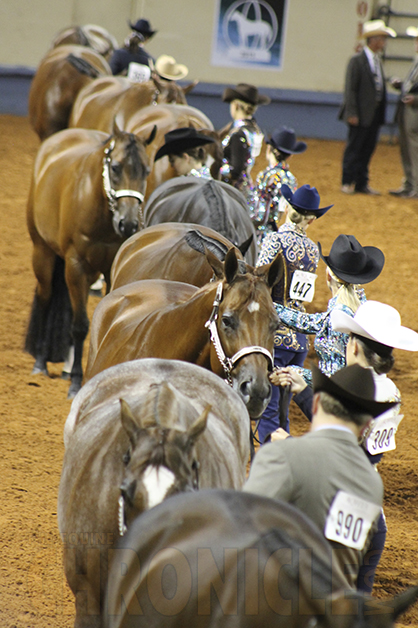University of Minn. Begins Largest Ever Study on Muscle Disease in the Horse

ST. PAUL —- A team of researchers at the University of Minnesota College of Veterinary Medicine (CVM) have launched a study investigating the genetic and management factors influencing muscle disease in horses. The scientists are also looking to determine if diet or exercise impact muscle disease expression.
Results from this study will help veterinarians, researchers, and horse owners develop treatment strategies to combat the wide-spread problem. This study is both the largest study into muscle disease in horses and the largest crowd-sourced study in the College’s history.
“Muscle diseases are some of the most common health issues horses face, with more than 250,000 horses in the US afflicted each year,” says Molly McCue, DVM, MS, PhD, professor in the Department of Veterinary Population Medicine, associate dean of research at the CVM, and principal investigator on the study. Horses with muscle disease often exhibit muscle pain, stiffness, and a reluctance to move.
The research team hopes to leverage its longstanding expertise in genetic and muscle disease research to both identify which specific genetic mutations predispose a horse to muscle disease, and advance therapies. “We are turning to our expansive network of cases to help us respond to this far-reaching challenge in equine veterinary medicine,” McCue says.
Submitting a horse with suspected or diagnosed muscle disease to this study is a four-part process, involving the supplementary submission of a horse residing on the same property without a suspected or diagnosed muscle disease to act as the control. All information regarding submitting a horse to this study, FAQs, and details behind the study can be found on the study’s website. Study updates will be posted on the Equine Genetics and Genomics Laboratory Facebook page.
This study is funded in part by a grant from Morris Animal Foundation, as well as support from private donors.










